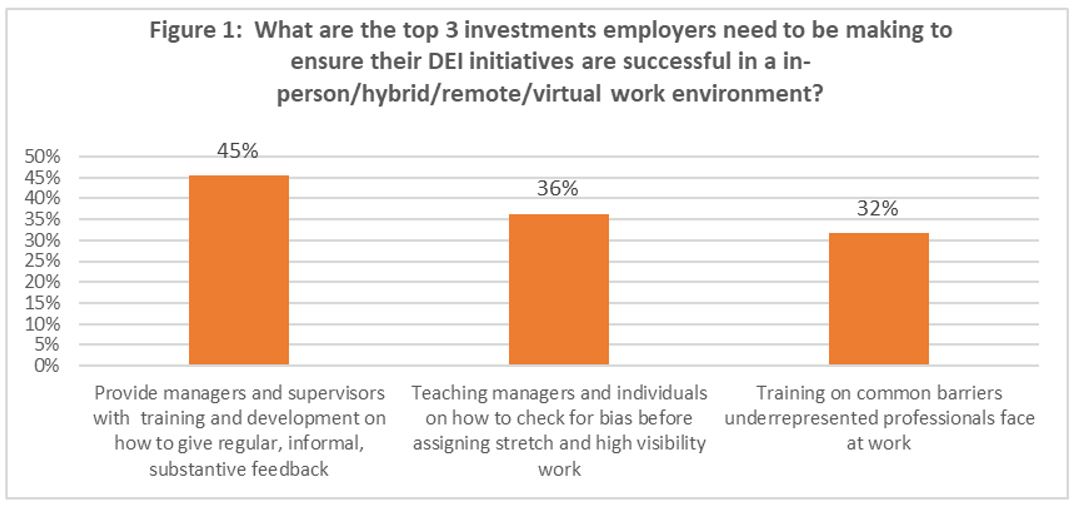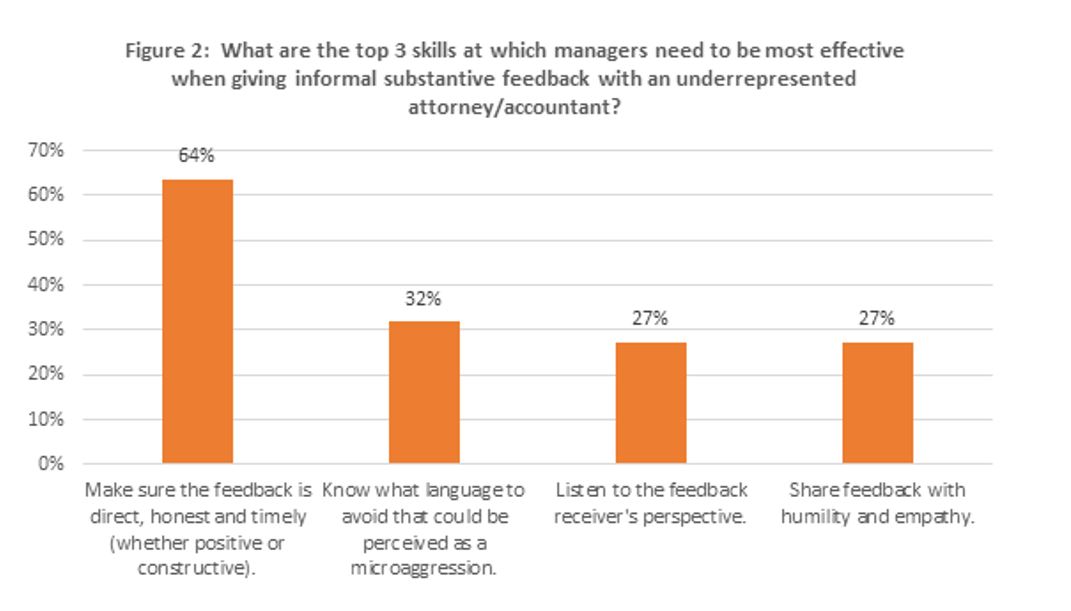How can legal and accounting firms find the best ways to invest in developing and retaining their talent? We spoke with the newly created Thomson Reuters Equity, Diversity & Inclusion (TREDI) advisory board about this
Earlier this year, we looked at predictions on how investments in talent will evolve in the wake of the pandemic and in the context of employees demanding more flexibility from employers amid the labor market’s reshuffle. At that time, one of main theses in this new People Strategy 3.0 framework was that organizations will see the need to invest heavily in manager effectiveness.
Predictions held that throughout 2022 the acceleration of People Strategy 3.0 will drive convergence in organizations’ business strategy and talent strategy. In short, these strategies will become more synchronous and how this evolution impacts organizations’ future will crystallize this year.
Managers will determine success
Organizations will see the ability of their managers to meet demands of flexibility, culture, and performance, as well as leading a hybrid or remote team as crucial. Despite this, many of these concepts were foreign to most managers before the pandemic began. Further, managers’ ability to handle employees with unique identities and performance capabilities, and then customize their interactions to each person’s uniqueness are essential because such action fosters individuals’ feelings of belonging to the organization.
These skills will become the roots of organizations’ culture and business strategy because they influence enormously the day-to-day experiences of employees, particularly in hybrid or remote work environments. Indeed, employees are interacting with fewer people at work compared to when they were in the office, and this makes the daily interaction between manager and team members even more influential on employees’ retention and engagement. Further, these daily interactions also influence employees’ perceptions about their performance and their opportunities for career development and advancement. All of this is particularly important for underrepresented talent.
These assumptions are supported by research we’ve conducted with the newly created Thomson Reuters Equity, Diversity & Inclusion (TREDI) advisory board, which was created to provide a diversity of insight in terms of geography, experience, seniority, gender, race and ethnicity, sexual orientation, and industry. For example, when we asked board members what they thought should be the top three investments that organizations need to make to ensure their diversity, equity & inclusion initiatives (DEI) are successful in a variety of work environments, such as in-person, remote, and hybrid, the two most popular responses involved manager effectiveness.

Trust is the glue in manager effectiveness and organizational culture, and it will become the foundation of employees experience and performance going forward. This will necessitate integrating DEI, belonging and well-being activities holistically into organizations’ people strategy.
When we queried the TREDI advisory board on the best ways to build trust between managers and their team members, 55% of the board indicated that being transparent with open and honest communication was the best way. In further response, 50% of the board added that creating psychological safety — which is the trust and cohesion at the group or team level and the belief that employees can show up to work and within team as themselves — is also among the best ways to create trust.
Managers heavily influence culture
Because culture is delivered and exemplified in the daily interplay among an organizations’ team and its manager, community and conversation can transport your culture back and forth.
Research from the TREDI advisory board also supports this idea. The most frequent, pivotal one-on-one interactions between managers and employees are feedback chats. The TREDI board noted that the skills of managers and supervisors of work giving feedback — how substantive and actionable it is, and how it is delivered — as critical areas for career progression and retention of underrepresented lawyers and accountants. In fact, almost two-thirds (64%) of TREDI board members said that giving quality feedback is the most important skill for a manager to exhibit, and they cited this skill by a wide margin over others. Further, board members advised that first and foremost, feedback needs to be direct, honest, and timely, whether that feedback is positive or constructive.
Around one-third of board members indicated that avoiding language that could be perceived as a microaggression, listening to the feedback receiver’s perspective, and sharing feedback with humility and empathy also were important to for career development and retention of accountants and lawyers from underrepresented backgrounds.

In fact, many of these skills for creating an inclusive environment, building trust, and giving feedback are not new. However, they are critical for the retention and engagement of all employees but especially for underrepresented lawyers and accountants now and going forward.
You can learn more about the Thomson Reuters Equity, Diversity & Inclusion (TREDI) advisory board here.







